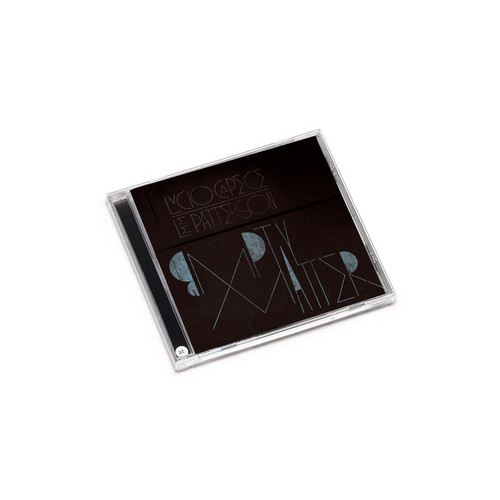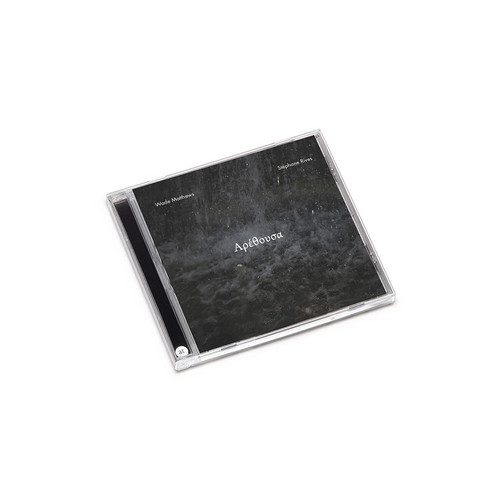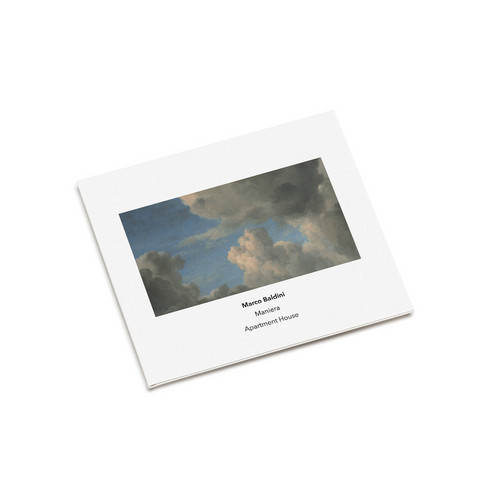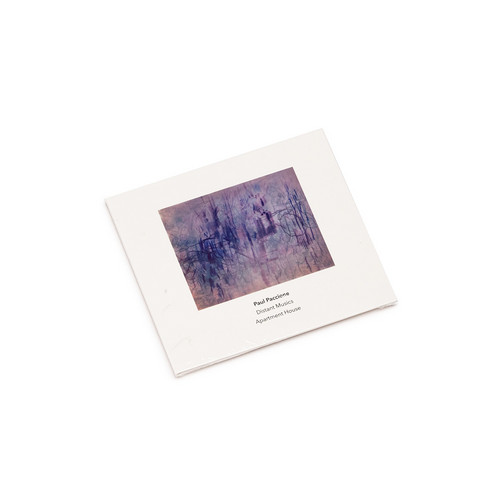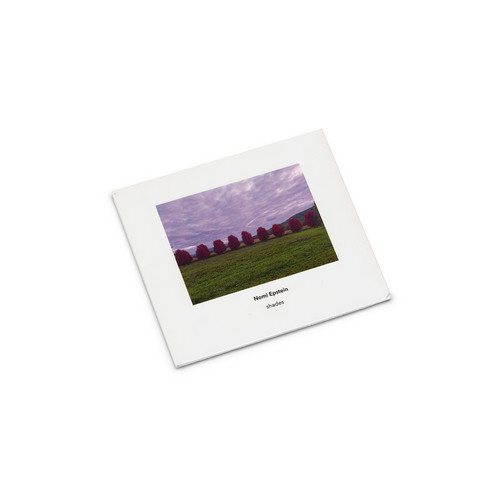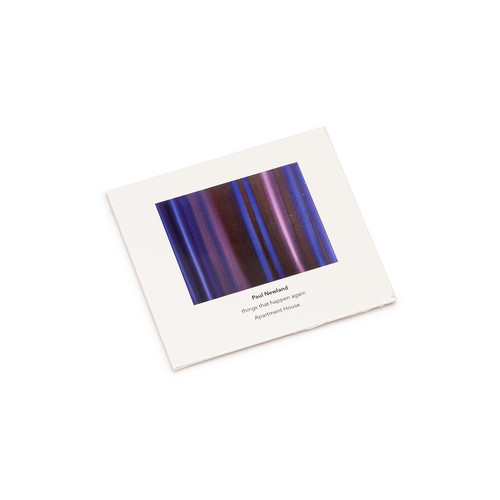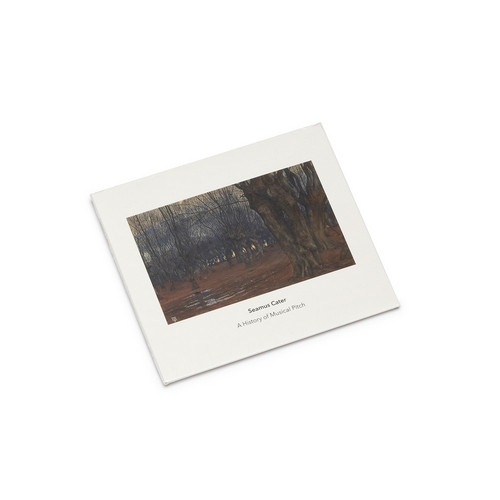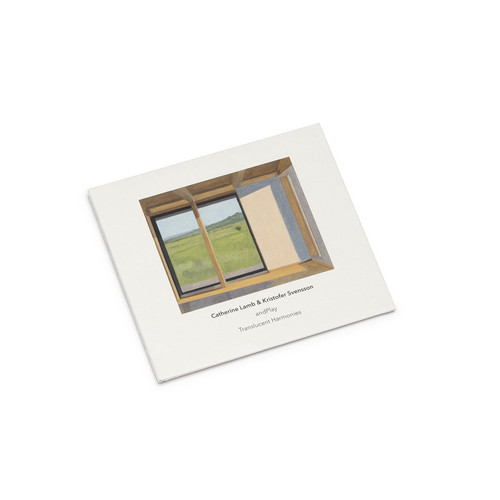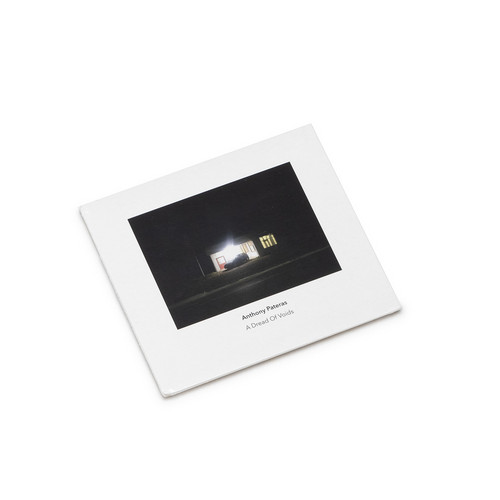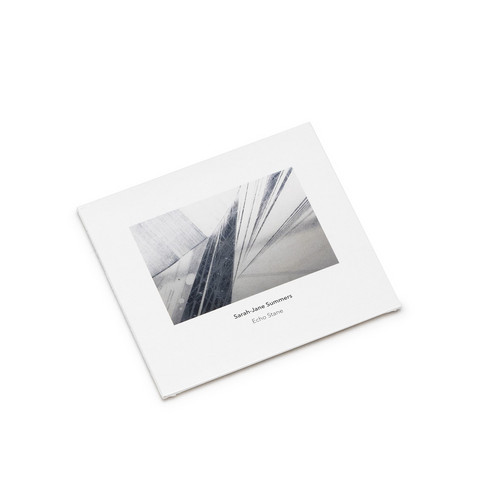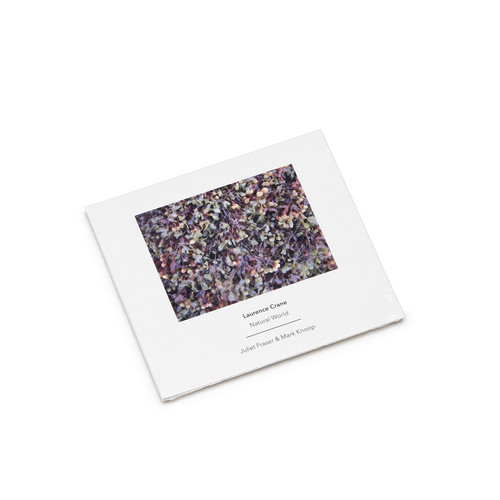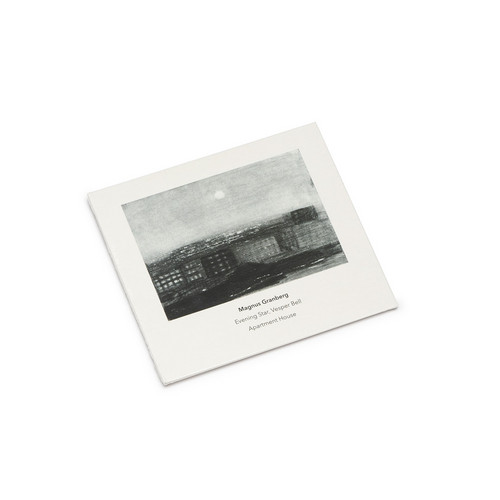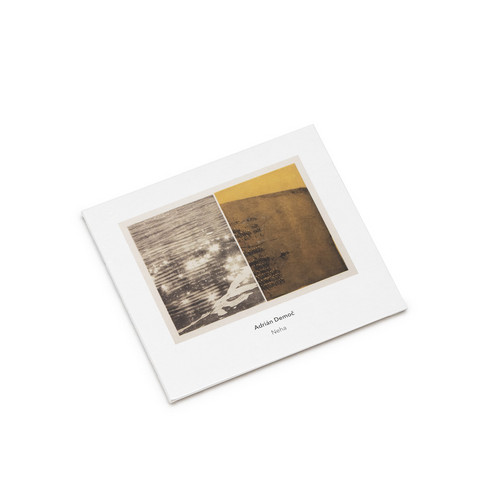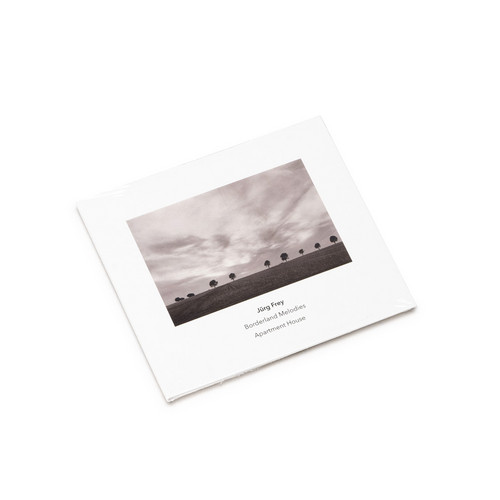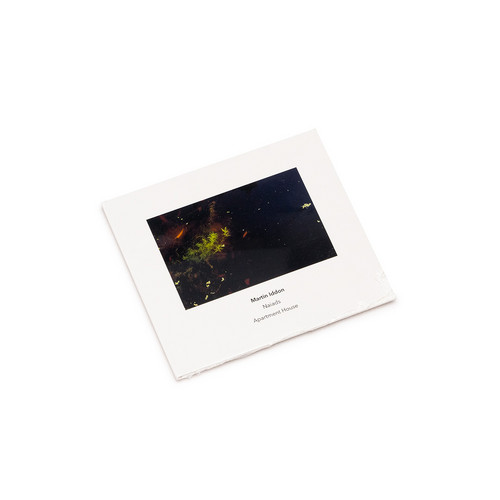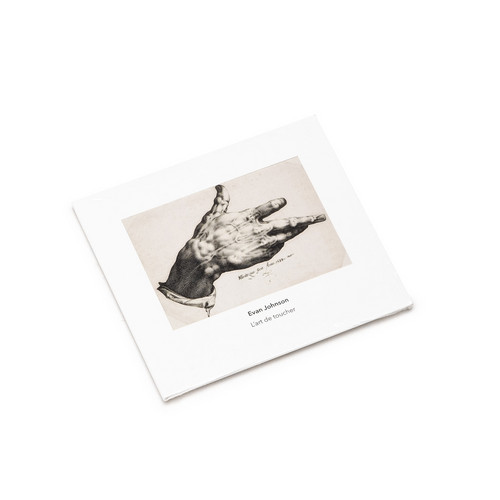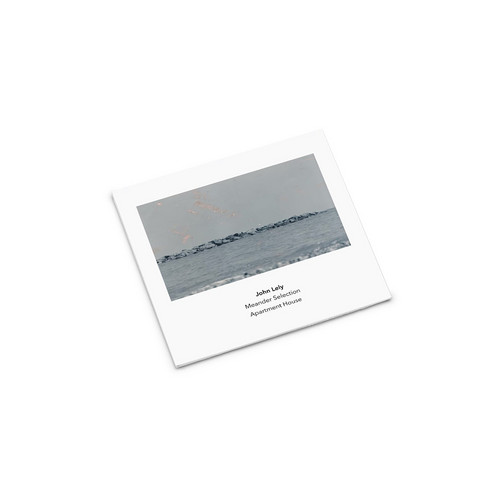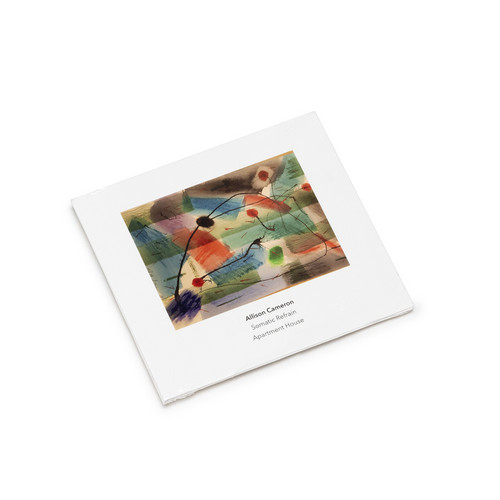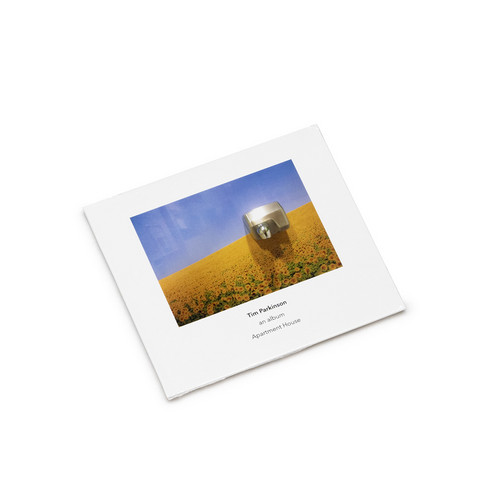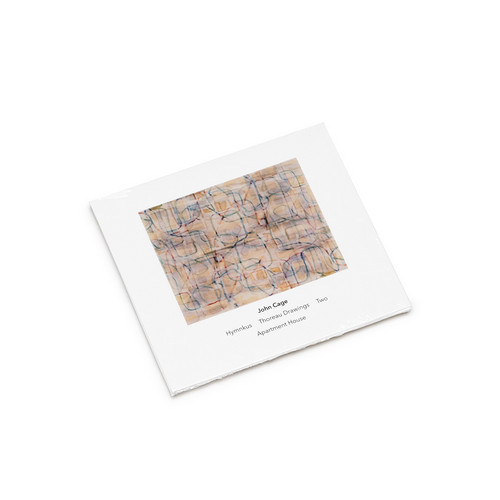★Another Timbre
Empty Matter
Lucio Capece (soprano saxophone, bass clarinet, preparations, sruti box) and Lee Patterson (CD players, pick-ups, e-bowed springrods, springplate, hazelnuts) recorded these eight pieces in what Norman Records describes as "absolutely beautiful music" where "two masters of tiny sounds meet up." Capece approaches his reeds "more as tubes for breath than as traditional 'instruments,'" while Patterson uses all sorts of sound processes—including amplifying burning hazelnuts.
Nick Cain in The Wire not…
Arethusa
Wade Matthews (software synthesis, manipulated field recordings) and Stéphane Rives (soprano saxophone) recorded these four pieces in Madrid in July 2008, creating music that speaks to transformation, identity, and the improviser's paradox. The album takes its name from Ovid's tale of Arethusa—a nymph fleeing the river god Alpheus who, in attempting to escape change, becomes water itself. As Matthews writes in his liner notes, "in her quest to remain herself, she has become exactly what she fled…
Maniera
With yet another striking and forward-thinking work of contemporary composition, Another Timbre returns with “Maniera”, their second outing with the Italian composer, Marco Baldini, following on from last year's brilliant “Vesperi” which sold out within weeks. Comprising seven works for various configurations of string ensemble, masterfully executed by Apartment House, that nod across time toward Italian polyphonic compositions of the 16th and early 17th centuries, the diverse history of Minimal…
Distant Musics
American composer Paul Paccione makes a welcome return to recording with this portrait album featuring five chamber works originally composed between 1980 and 1990, all performed by the acclaimed Apartment House ensemble. Born in New York in 1952, Paccione studied with legendary minimalist pioneer Harley Gaber and later at the University of Iowa, developing a distinctive voice deeply influenced by Morton Feldman, John Cage, and Anton Webern.
The album includes Exit Music for string trio, Gridwor…
shades
Boston-based composer Nomi Epstein makes her debut on Another Timbre with this portrait album featuring three chamber works composed between 2011 and 2023. Influenced by the New York School, Fluxus, Pauline Oliveros's Sonic Meditations, and the Wandelweiser collective, Epstein has developed a distinctive compositional voice centered on sonic fragility and textural subtlety.
The album opens with the title piece shades, a 20-minute string quartet written specifically for Apartment House in 2023. T…
Things that Happen Again
Things that Happen Again offers a panoramic entry point into the lucid, evolving world of Paul Newland. Recorded by Apartment House at Goldsmiths in 2023, the album presents compositions written across a fourteen-year span. The title alludes to Newland’s fascination with recurrence and reworking - tracks such as “Difference is Everywhere (altered again)” or “Things That Happen Again (again)” are not only marked by repetition but by acts of subtle reinvention, echoing Newland's habit of dismantli…
A History of Musical Pitch
This album contains three works by Seamus Cater, including his creative response to the work of Alexander John Ellis (1814-1890), who presented a paper 'The History of Musical Pitch' to the Royal Society in 1880. Ellis was a mathematician, collector, philologist and musical enthusiast, who spent a lot of time measuring the exact frequencies of contemporary and ancient musical instruments, and so is remembered as one of the founders of comparative musicology. Two of the pieces on the disc are 're…
Translucent Harmonies
New York-based duo andPlay – violinist Maya Bennardo and violist Hannah Levinson – present two extended works exploring the sonic possibilities of just intonation tuning systems. Both pieces were commissioned for andPlay's concert series Translucent Harmonies and premiered in 2018.
Catherine Lamb's Prisma Interius VIII (Melodic Duo) (22 minutes) strips her Prisma Interius series down to its bare essence, removing the electronic spectral resonance of earlier versions. Here, violin and viola plot …
A Dread of Voids
Melbourne-born composer Anthony Pateras presents two substantial chamber works emerging from distinct contexts yet unified by his singular approach to electro-acoustic orchestration. Born to Macedonian immigrants in the late 1970s, Pateras has built a 25-year career spanning collaborations with John Zorn's Tzadik, Peter Rehberg's Editions Mego, and commissions from INA-GRM.
Patterned Language (19 minutes) unfolds from a live performance at Melbourne's Church of All Nations in November 2022. Comm…
Echo Stane
Nine solos for Hardanger fiddle that trace a fascinating journey between tradition and experimentation, composed and performed by Sarah-Jane Summers, a virtuosic Scottish musician based in Norway. With Echo Stane, Summers employs the Hardanger fiddle – the national instrument of her adopted country – as a bridge across the North Sea, connecting the musical heritage of the Scottish Highlands with Norwegian folk traditions while pushing both toward the avant-garde.
Summers grew up in rural Inverne…
Natural World
Natural World by Laurence Crane offers an expansive and quietly subversive study in sonic ecology, blending piano, soprano, and field recordings. Written for Juliet Fraser and Mark Knoop, the piece unfolds over three movements, combining encyclopedic texts, birdsong, and elemental musical motives in a measured fifty-five-minute reflection on beauty and environmental fragility.
Evening Star, Vesper Bell
Evening Star, Vesper Bell by Magnus Granberg with Apartment House is a nearly hour-long meditation bridging composed structures and improvisational nuances. Drawing on remnants from Schubert and Cole Porter, the ensemble crafts an intricate tapestry of sound, embracing openness, patience, and detailed interplay. It is a work that rewards repeated, attentive listening and the discovery of subtle, shifting textures.
Neha
Neha is an album by Adrián Demoč featuring the Slovak Radio Symphony Orchestra and Ostrava New Orchestra. Each work extends beyond twenty-five minutes, exploring soft layers of orchestral sound, calmly repeating motifs, and silences that articulate the music’s emotional contour. The pieces are defined by their meditative atmosphere and gradual, unforced transformations.
Borderland Melodies
Borderland Melodies, composed by Jürg Frey and interpreted by Apartment House, features three chamber works that exemplify Frey's subtle balance of melody, structure, and quiet innovation. The music explores gradual transformation, intertwining voices, and the shading of tone and silence, creating a meditative sound world where every phrase and rest feels considered and essential.
Naiads
Naiads by Martin Iddon, realized by Apartment House, is a cycle of five chamber works inspired by freshwater nymphs from Greek myth. Each piece constructs its own world of slow-blooming gestures and modestly veiled lyricism, balancing clarity and ambiguity as the ensemble circulates between unison playing, shifting tempos, and suspended harmonies. The result is a collection of subtly haunting, atmospheric music shaped with patient detail.
L'art de toucher
L’art de toucher by Evan Johnson features five chamber works that probe the outer limits of sound and silence. With a triptych for piccolo, violin, and percussion at its core, the album also presents finely wrought solo and trio pieces. Johnson’s sensitivity to musical detail shapes an experience full of ambiguity, microscopic interactions, and delicate intensity.
Meander Selection
Meander Selection features chamber works by John Lely performed by Apartment House, foregrounding melodic fragments, repetition, gradual change, and the interplay between structure and spontaneity. The album's six tracks move through distinct instrumentations and atmospheres, revealing a composer attuned to understated detail and poised sonic balance.
Somatic Refrain
Somatic Refrain is a collection by Allison Cameron for varied chamber forces and ensemble, performed by Apartment House and the Allison Cameron Band. Her music combines delicate sound textures, unpredictable motifs, and hints of folk and experimental methods, rewarding attentive listeners with gentle surprises and new perspectives on instrumental color.
An Album
An Album by Tim Parkinson and Apartment House includes five works covering two decades of the composer’s creative evolution. From uncoordinated solo and ensemble pieces to re-imagined septets and violin-piano duos, the music is marked by matter-of-fact presentation, rhythmic independence, and a celebration of the mundane as fertile compositional ground.
Hymnkus Thoreau Drawings Two
Hymnkus Thoreau Drawings Two features three rarely encountered works by John Cage, interpreted by Apartment House. The album brings together the sparse, spatial interplay of “Two”, the poised transformations of “Thoreau Drawings”, and the hypnotic, layered repetitions of “Hymnkus” in performances marked by clarity, restraint, and ensemble sensitivity.
